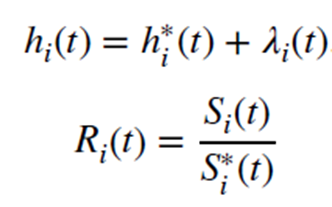When it comes to quantifying the full costs and benefits of a treatment over time, especially for HTA purposes, extrapolating clinical benefits beyond the duration of clinical trials is crucial. Standard parametric approaches may not fully capture the survival profile of new therapies offering long-term, durable survival gains. Cure models, such as mixture cure models (MCM) and non-mixture cure models (NMC), offer more flexible methods to estimate cure fractions and survival risk. Authors suggest considering these models for better understanding and predicting long-term outcomes of treatments.





